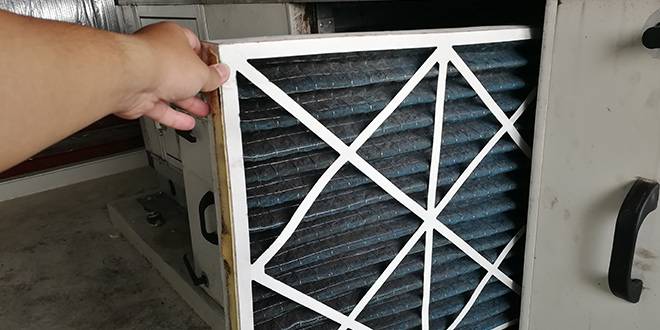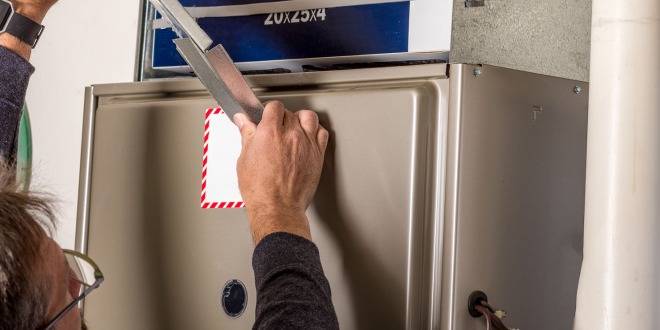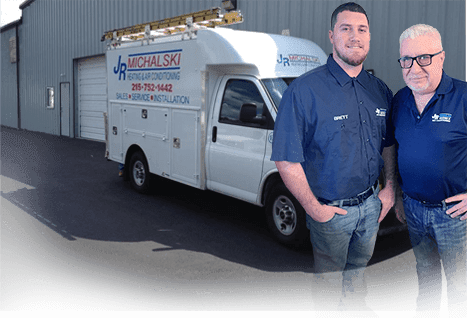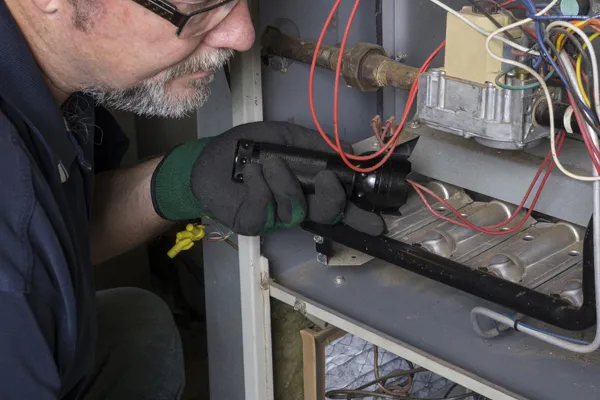
In the heart of a cozy home, the furnace plays a pivotal role in providing warmth and comfort. However, when this silent guardian starts making loud and unusual noises, it can be a source of concern and annoyance. A noisy furnace is not just a nuisance; it often signals underlying issues that may need immediate attention. From minor irritations to serious mechanical failures, the sounds emanating from your furnace can hold vital clues to its health and operational efficiency.
Understanding why your furnace is making loud noises is crucial to ensuring its longevity and functionality. In this comprehensive guide, we delve into the ten most common reasons behind these unsettling sounds and provide practical advice on how to address them. Whether you’re a DIY enthusiast or prefer leaving it to the professionals, this article offers valuable insights and solutions to help you restore peace and warmth to your home.
As we explore the various causes of furnace noises, ranging from simple fixes to more complex issues, you’ll gain the knowledge and confidence to tackle this challenge head-on. So, let’s turn down the volume on that noisy furnace and turn up the comfort in your living space.
Common Causes of Furnace Noises
When your furnace starts to sound more like a percussion section than a heating unit, it’s time to investigate. Various factors, from simple fixes to more complex mechanical issues, can cause these noises. Let’s explore the top ten reasons why your furnace might be making loud noises and what they indicate.
- Dirty Filters: One of the most common and easily rectifiable causes of a noisy heating system is a dirty furnace filter. A clogged filter restricts airflow, causing the furnace to work harder. Conversely, a filter that is too clean or absent can allow too much air to enter the system, leading to a humming or a high-pitched whistling sound. Regularly replacing or cleaning your furnace‘s air filter can prevent these issues and maintain optimal airflow.
- Wear and Tear of Mechanical Parts: Furnaces contain several mechanical parts, such as belts and bearings, which can wear out over time. A squealing or screeching sound often indicates a worn belt, while grinding may suggest bearing issues. These parts need to be inspected and replaced by a professional.
- Ductwork Expansion and Contraction: As the furnace heats and sends warm air through your ductwork, it expands and contracts. This can cause popping or banging sounds. While this is typically normal, excessive noise might indicate undersized ducts, clogged vents, or a lack of insulation.
- Failing Blower Motor Capacitor: If you hear a loud humming or buzzing sound, it might be due to issues with the blower motor or the blower wheel. Imbalances or obstructions in the blower wheel can cause unusual noises and affect the motor’s performance. Depending on the severity, these components may need cleaning, adjustment, or replacement by a technician.
- Ignition System Issues: Delayed ignition in a gas furnace’s combustion chamber can cause a loud booming sound. This happens when gas builds up inside the chamber and ignites all at once instead of burning steadily as it should. This is not only noisy but also potentially dangerous, requiring immediate professional attention.
- Loose or Unbalanced Components: Over time, components within your furnace can become loose or unbalanced, leading to rattling or vibrating sounds. Tightening or adjusting these parts can often resolve the issue.
- Cracked Heat Exchanger: A particularly serious problem is a cracked heat exchanger, which can lead to a variety of noises, including a loud banging noise. This is not only a concern for noise but also poses a significant safety risk due to the potential for carbon monoxide leaks. If you suspect this issue, it’s critical to turn off your furnace and contact a professional immediately.
- Thermostat Malfunctions: Sometimes, the issue isn’t with the furnace itself but with the thermostat. Incorrect settings or malfunctions can disrupt the normal heating cycle, causing the furnace to cycle on and off more frequently than necessary. This can lead to unusual noises and reduced efficiency. Resetting or recalibrating your thermostat may resolve these issues.
- Air in the Lines: In hydronic heating systems (like boilers), air trapped in the lines can cause a gurgling or water-boiling sound. Bleeding the lines to remove the air is a common solution.
- Flame Rollout: A rare but dangerous issue is flame rollout, where flames come out of the furnace instead of going up the flue. This can cause a roaring sound and is a serious fire hazard.
By understanding these common causes, homeowners can better diagnose and address the mysterious sounds their furnace might be making. Remember, while some issues can be fixed with simple DIY solutions, others require the expertise of a qualified HVAC technician to ensure safety and proper functionality.
DIY Troubleshooting and Fixes for a Noisy Furnace

While some furnace issues require professional intervention, there are several problems that homeowners can troubleshoot and resolve on their own. Here’s a guide to identifying and fixing some common furnace noise issues:
- Cleaning or Replacing Air Filters: As mentioned earlier, dirty air filters can cause several problems, including noise. Check your furnace’s air filter monthly and clean or replace it as necessary. This not only reduces noise but also improves efficiency and air quality.
- Tightening Loose Screws and Components: Rattling or vibrating sounds often come from loose screws or components. With the furnace turned off, use a screwdriver to carefully tighten any loose screws on the access panels or other accessible parts.
- Lubricating the Blower Motor: If your furnace has a blower motor that can be lubricated (consult your manual), applying oil to the bearings might quiet a noisy motor. However, many newer models have sealed motors that don’t require lubrication.
- Checking and Adjusting the Belt: A squealing noise often indicates a loose or frayed blower belt. Inspect the belt for wear and tension, and adjust or replace it if necessary. Make sure to turn off the power to the furnace before attempting this.
- Inspecting the Ductwork: Popping or banging from ductwork can be due to expansion and contraction. Check for any visible dents or signs of disconnection in exposed ducts. Adding insulation or consulting a professional to assess the sizing and layout may be necessary.
- Cleaning the Flame Sensor: A dirty flame sensor in a gas furnace can cause it to make a rumbling noise. Carefully cleaning the sensor with a fine emery cloth can resolve this issue.
- Bleeding Radiators (For Boiler Systems): If you have a boiler system, trapped air can cause a gurgling sound. Bleeding your radiators to release trapped air can solve this problem. Make sure to research or consult your manual for the correct procedure.
- Resetting the Thermostat: Sometimes, simply resetting or recalibrating your thermostat can solve noise issues, especially if the furnace is short-cycling.
- Checking for Obstructions: Ensure that all vents and registers are open and unobstructed. Sometimes, furniture or other items can block airflow and cause noise.
- Conducting a Visual Inspection: Look for any signs of damage or wear on visible parts. If something looks out of place, but you’re not sure how to fix it, it’s time to call a professional.
Remember, safety is paramount. Always turn off the power to your furnace before attempting any repairs, and never hesitate to contact a professional if you are unsure or uncomfortable with performing any of these tasks. Proper and regular maintenance can prevent many of these issues from occurring in the first place.
When to Call a Professional: Understanding Serious Furnace Issues

While many furnace problems can be addressed through DIY methods, there are certain situations where calling a professional is not just recommended but essential. Here are some scenarios where expert intervention is crucial for safety and proper furnace operation:
- Persistent Loud Noises: If the loud noises from your furnace persist despite your troubleshooting efforts, it could indicate a deeper, potentially serious issue. Persistent banging, screeching, or rattling sounds warrant a professional diagnosis.
- Signs of a Cracked Heat Exchanger: A cracked heat exchanger is a severe safety risk, leading to carbon monoxide leaks. If you notice a sharp chemical odor or soot around your furnace, shut it off immediately and call a technician.
- Gas or Fuel Issues: Any problems related to gas or fuel supply, such as a gas leak (identified by a rotten egg smell) or issues with the fuel line, should only be handled by professionals due to the high risk of fire or explosion.
- Electrical Problems: If you suspect electrical issues, such as frequent circuit breaker trips or sparks, it’s time to call a technician. Electrical problems can be complex and dangerous.
- Improper Combustion: A yellow or flickering flame (instead of a steady blue flame) in a gas furnace suggests improper combustion, which can release harmful gases. Professional service is necessary to adjust the burner or correct the gas mixture.
- Delayed Ignition or Flame Rollout: These issues can lead to explosive noises and are significant fire hazards. If you observe delayed ignition or flames rolling out of the furnace body, immediately turn off the unit and contact a professional.
- Frequent Cycling or Overheating: If your furnace turns on and off too frequently or overheats, these could be signs of a malfunctioning thermostat, limit switch, or more complex internal issues requiring professional attention.
- Unexplained Increase in Heating Costs: A sudden spike in your heating bills without a corresponding increase in usage indicates inefficiencies that a professional needs to diagnose and fix.
- Water Leaks (for Boiler Systems): Water leaks in boiler systems can lead to significant damage and require immediate professional repair.
- Inadequate Heating or Airflow: If your furnace isn’t heating your home evenly or adequately, despite having clean filters and clear vents, a technician can identify and resolve issues like poor duct design or a failing blower motor.
In these cases, a certified HVAC technician will not only resolve the issue effectively but also ensure that your furnace operates safely and efficiently. Regular professional maintenance can prevent many of these problems and extend the life of your furnace.
Preventive Maintenance: Keeping Your Furnace Quiet and Efficient

Regular preventive maintenance is key to keeping your furnace running quietly and efficiently. By staying proactive, you can extend the lifespan of your furnace, prevent unexpected breakdowns, and ensure a comfortable, warm home. Here are essential maintenance tips to keep your furnace in top condition:
- Schedule Annual Professional Inspections: Have a certified HVAC technician inspect and service your furnace yearly. This can identify potential issues before they become major problems and ensure that your system is running at peak efficiency.
- Regular Filter Changes: Change or clean your furnace filters every one to three months, depending on usage and filter type. A clean filter improves airflow and efficiency and can reduce unexpected noises.
- Keep Vents and Registers Clear: Ensure that all vents and registers are open and not obstructed by furniture, rugs, or drapes. This improves air circulation and prevents strain on your furnace.
- Inspect and Clean Air Ducts: Periodically check your ductwork for leaks, blockages, or damage. Consider professional duct cleaning every few years to remove dust and debris.
- Test Your Thermostat: Regularly check your thermostat’s accuracy and replace the batteries annually. A malfunctioning thermostat can cause your furnace to cycle on and off more frequently than necessary.
- Lubricate Moving Parts: If your furnace has parts that require lubrication, do so annually to prevent friction and wear (consult your furnace manual or a professional for guidance).
- Check the Blower Belt: Inspect the blower belt for cracks or fraying and ensure it has the proper tension. Replace the belt if it shows signs of wear.
- Dirty Burners and Flame Sensor: For gas furnaces, keeping the flame sensor and burners clean ensures efficient operation and prevents noise caused by improper combustion.
- Ensure Proper Ventilation: Regularly check that the furnace’s exhaust vent is clear of obstructions like leaves, bird nests, or snow. Proper ventilation is crucial for safety and performance.
- Listen and Observe: Pay attention to any changes in furnace performance or noises. Early detection of irregular sounds can prevent more significant issues later.
By adhering to these preventive maintenance tips, you can keep your furnace running smoothly and quietly. Not only will this improve your home’s comfort, but it will also save you money on energy bills and costly repairs in the long run. Remember, while many of these tasks can be done yourself, don’t hesitate to consult with a professional for more complex maintenance needs.
Stay Warm and Worry-Free with JR Michalski Heating & A/C 🌡️🔧
Ready to silence that noisy furnace and enjoy a cozy, efficient home? Contact JR Michalski Heating & A/C today! Our team of experts is committed to providing top-notch service and lasting solutions for all your heating needs. Let us help you achieve the perfect home comfort. Call us now – your tranquil, warm home awaits! 🏠📞

